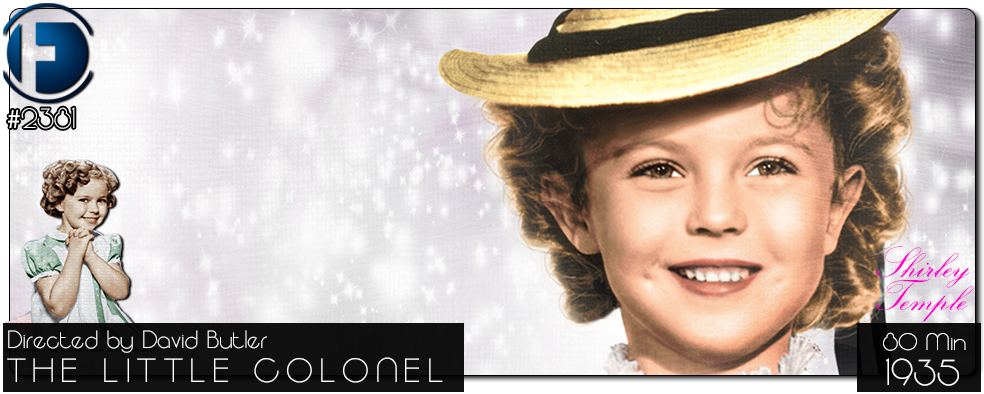Movie Review – Little Colonel, The (1935)
Principal Cast : Shirley Temple, Lionel Barrymore, Evelyn Venable, John Lodge, Sidney Blackmer, Stephen Chase, William Burress, Frank Darien, Bill Robinson, Robert Warwick, Hattie McDaniel, Geneva Williams, Avonnie Jackson, Nyanza Potts.
Synopsis: In the post-Civil war south, a darling little girl attempts to restore the peace between her parents and her plantation owner grandfather.
********
Classic early Shirley Temple comedy/drama co-starring an irascible John Barrymore, The Little Colonel is preposterous down-home wholesome nonsense that puts its pint-sized starlet front and center with all the cheeky charm her cherubic countenance could muster. As sweet as a sack of saccharine, this film belies its more serious racial elements with a genuine whimsy and wit, and although time has not been kind to the depictions within the story it remains an entertaining – if anachronistic – piece of filmed entertainment.
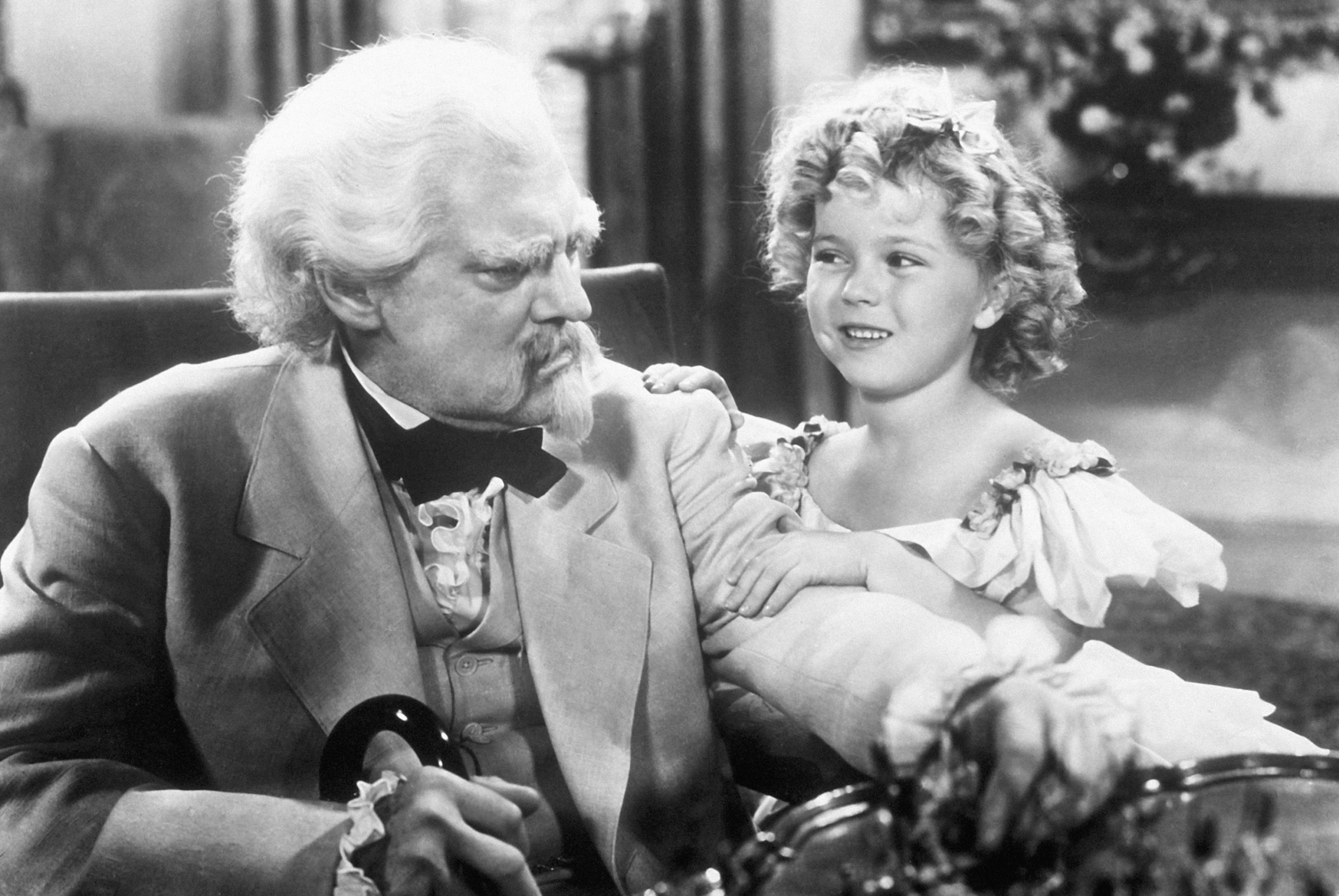
Set in post-Civil War Kentucky, the film is centred around the reconciliation between a stubborn Southern aristocrat and his estranged daughter. Shirley Temple stars as Lloyd Sherman, a lively and mischievous young girl who becomes the bridge between her mother, Elizabeth Lloyd Sherman (Evelyn Venable), and her embittered grandfather, Colonel Lloyd (Lionel Barrymore), a former Confederate officer. After Elizabeth marries a “Yankee,” Jack Sherman (John Lodge), the Colonel disowns her, but the charm and determination of young Lloyd eventually thaw his heart, leading to a heart-warming reunion.
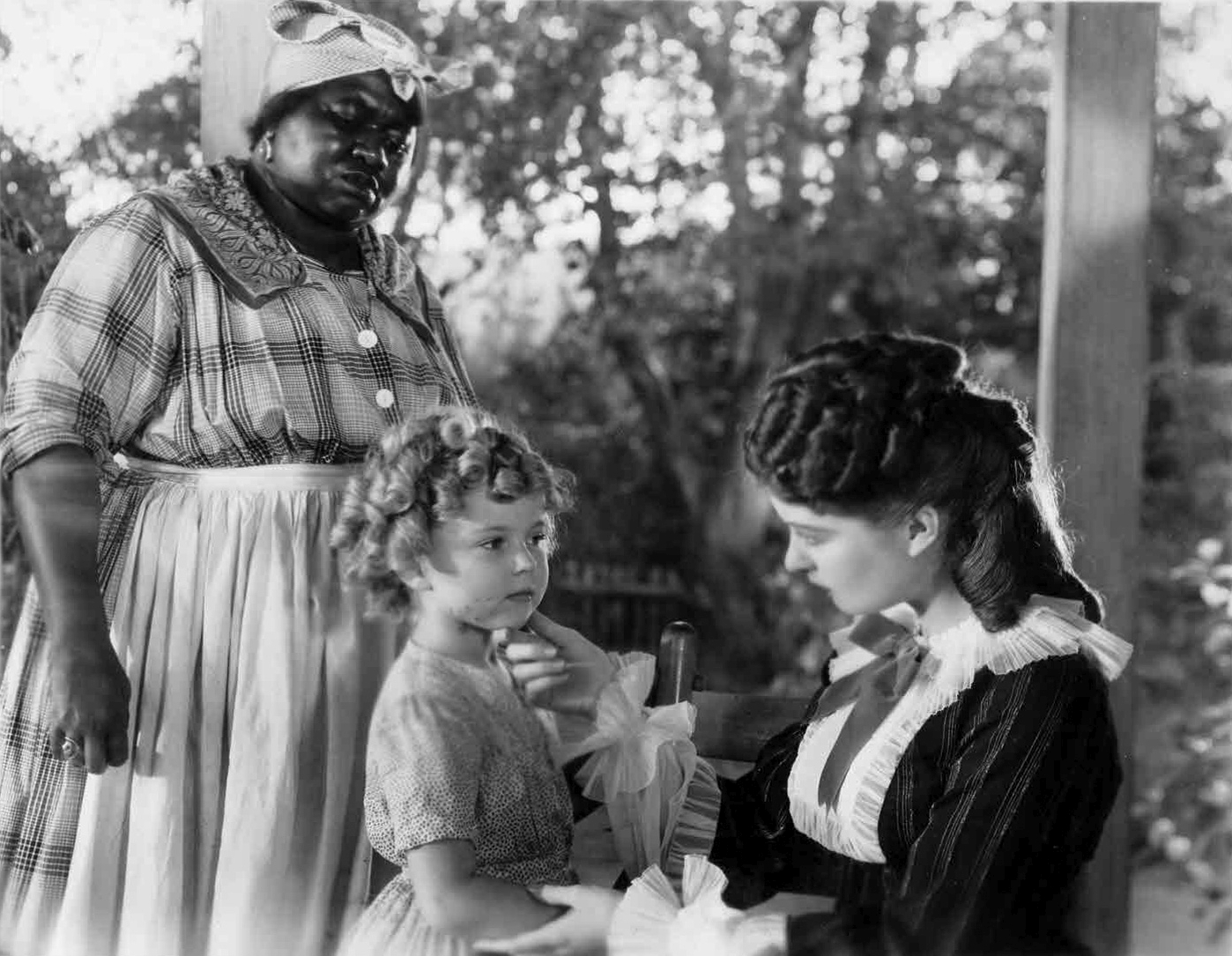
The Little Colonel – my first foray into watching any film in which Shirley Temple appears – is the cinematic equivalent of sucking a peppermint sweet and then immediately drinking orange juice. If that didn’t make the hair on your neck stand up, my friend you have not lived. As a vehicle to showcase the popular child star, who had come to popularity a year prior to this film with 1934’s Stand Up And Cheer, David Butler’s post Civil War drama is a magnificent example of the Hollywood machine just churning out fantastical nonsense for paying audiences. Shirley, who was only seven at the time The Little Colonel released in February of 1935, shows a precocious and engaging screen charisma, alongside that chipmunk-cheeked grin and twinkle in the eye and it’s easy to see how Hollywood producers and pre-war audiences adored her. The film’s title is derived from a pretty fanciful plot device in which Temple’s character, the young Lloyd Sherman, is hilariously granted the rank of an officer following her father’s leaving the Union Army at the end of the Civil War, and the story’s byplay between Temple and Lionel Barrymore’s actual Colonel – from the opposing Confederate Army – forms the crux of the plot’s central conflict.
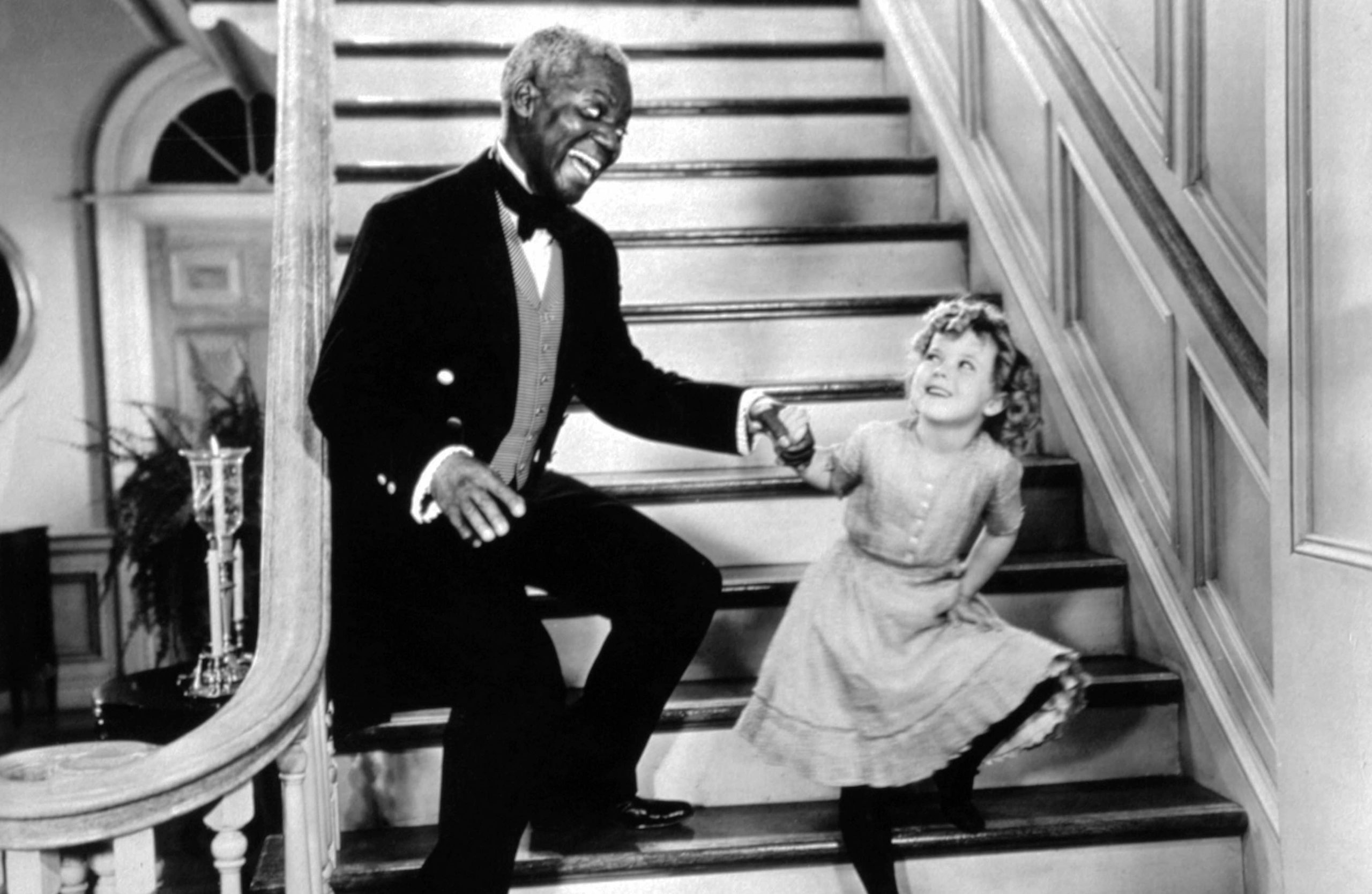
Ostensibly a family drama, the Barrymore/Temple pairing is quite inspired, not for nothing that Barrymore’s grumpy, harrumph-harrumph military man has his heard softened by his clear-eyed and ferociously optimistic granddaughter, resulting in the ubiquitous “awwwww” from the audience by the time the closing credits roll. The film is largely better known for the iconic staircase tap-dance sequence between Temple and co-star Bill Robinson (who would pair with her on-screen several times in the subsequent years), a sequence that was removed from the film’s release in the United States’ southern regions, for its then-risky perceived racial liberalism. The film also co-stars Hattie McDaniel, an African-American actress best known for playing an almost identical role in the 1939 Best Picture winner Gone With The Wind, as well as the voice of Disney’s Blue Fairy herself, Evelyn Venable, here playing Shirley Temple’s on-screen mother. A pair of young black kids, Avonnie Jackson and Nyanza Potts, have the unfortunate pleasure of being vilified racially by Barrymore’s Colonel Lloyd, who uses the vulgar phrase “pickaninnies” at one point, and let me tell you sitting there watching this it struck me in the face like a cast-iron glove. While the film’s tone is one of genteel deep south “well, we all made mistakes” charm, the racial undercurrent remains prevalent – one must consider the setting of the story, for sure, but seeing such outdated language used in such an otherwise wonderfully family-friendly story is a stark reminder that this dark chapter of history isn’t all that long ago.
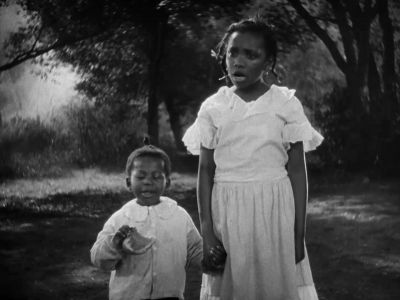
The central plot involving Temple and Barrymore bickering and sparring over various points of difference is the impetus for a lot of the film’s fun. A sidebar plot involving Temple’s mother and father, a ruinous trip out west in search of gold, and a wealthy railroad company offering sweet, sweet money for land access, is somewhat underwritten to the point it sours the film a touch, but is truly forgettable when Temple switches on her megawatt charm, and by goodness does she unload it in spades. The kid is the sweetest, most gregarious and natural young actor you’ll see, although her routine of facial expressions and physical tics is fairly limited at this point in her career. The iconic hands-on-hips pose she strikes when she’s cross with somebody absolutely made me guffaw more than once, and no doubt audiences of the time lapped this up. In a curious creative choice, for a brief moment the film actually uses some colour photography – a rarity in 1935 even then, and quite expensive – in a concluding scene, despite the majority of the film being presented in monochrome, and aside from perhaps an emotional beat or reflectively “out of the darkness” narrative tone, it was quite a jarring effect indeed. David Butler’s direction is generally terrific, although often fairly pedestrian in its framing and inventiveness, although Arthur C Miller’s cinematography – particularly the film’s exterior work – is exemplary.
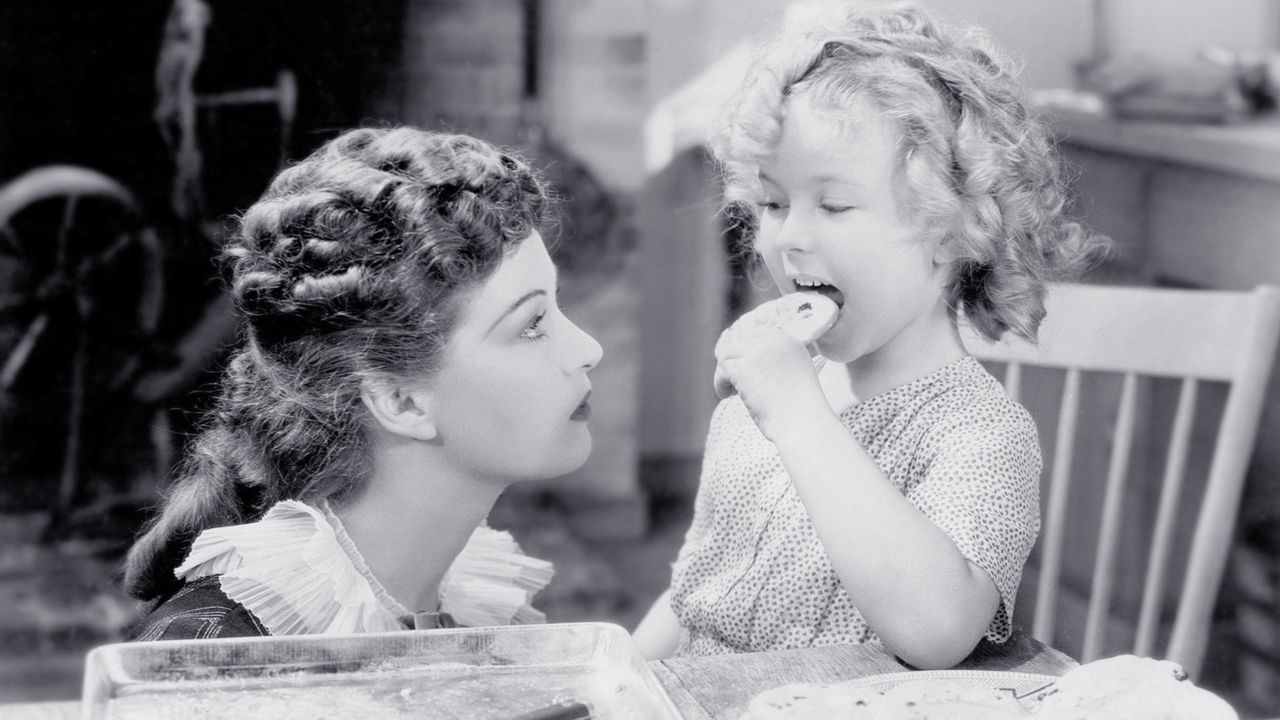
The Little Colonel is a fun, effortlessly charming dramatic comedy that rests squarely on the Temple/Barrymore dynamic, and when it focuses on this specifically everything feels and sounds like magic. The few times a subplot inserts itself things lean a touch too off-key for my liking, but thankfully this is infrequent enough not to dampen my enjoyment of the final product. I adored Shirley Temple here; child actors as the stars are something I usually only like in small doses, but Temple’s charm and reputation are more than earned thanks to a winning and not-at-all-annoying screen persona. The film’s postwar setting and mid-30’s production value imbue it with a wholesome, cheesy allure, and if you have the temperament to enjoy this kind of thing I can thoroughly recommend it. It is at times annoyingly sweet, with a number of decent chuckles to be had, but overall it’s a fascinating entry point to discover the charms of this early childhood big-screen superstar.

